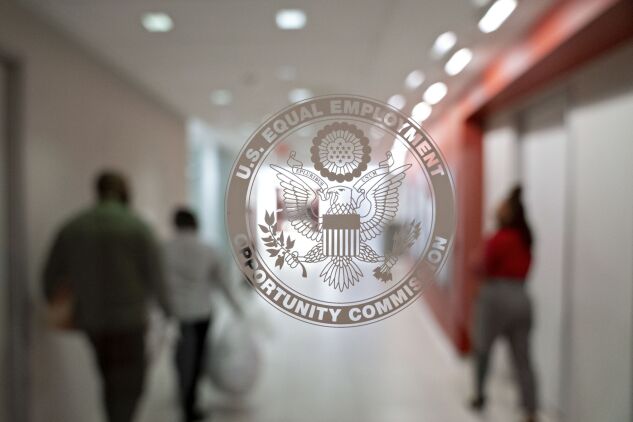Monday morning musings for workplace watchers
A Shutdown Quorum | USCIS Goes Electronic
Rebecca Klar: The EEOC could restart voting for the first time since late January, but the ongoing government shutdown poses fresh roadblocks for a newly established Republican majority that’s poised to make its mark.
Republican Brittany Panuccio was sworn in as an EEOC commissioner last week, however, furloughed staff, official noticing requirements, and the Antideficiency Act stand in the way of the Equal Employment Opportunity Commission holding anticipated votes.
During the last lingering shutdown in 2018 the agency didn’t hold votes, but the current shutdown coincides with the return to a three-member quorum and a Republican majority eager to roll back portions of the Biden-era Pregnant Workers Fairness Act rules and anti-harassment guidance to move ahead with Trump-aligned priorities.
The agency’s shutdown plan doesn’t state that the commission will vote on any policy measures, and only 131 out of 1,814 total agency employees will remain working including the three commissioners. An EEOC spokesperson didn’t respond to a request for comment.
Although commissioners are eligible to continue working through the lapse in funding, the lack of staff available likely means the EEOC doesn’t have workers needed to assist with the mechanics of voting, agency stakeholders said.
By bringing in any furloughed staff, it could implicate the Antideficiency Act which dictates that agencies can’t expend federal funds in advance or in excess of an appropriation. During a lapse in appropriations agencies are supposed to follow their shutdown plans.
The EEOC may be able to use old-school paper voting forms from decades ago, but even then the commission will hit hiccups around noticing requirements.
The Federal Register will only publish documents “necessary for the protection of life and property” during a shutdown, which may not include the commission’s anticipated votes on pregnancy bias rules or anti-harassment guidance, one labor attorney noted.
Plus, the funding halt may make it difficult for the agency to pay the $453 per page fee to publish content in the Federal Register.
The shutdown also limits the agency from holding any public meetings about potential changes to guidance or regulation.
Andrew Kreighbaum: A Trump administration move to modernize the immigration benefits system could have disruptive effects on applicants and law firms, attorneys are warning.
US Citizenship and Immigration Services will now only accept electronic fee payments for benefits ranging from work permits to green cards—a change adopted only two months after the agency first announced it.
More than nine out of 10 payments were previously submitted via check or money order, Matthew Tressager, the agency’s spokesman, said in a statement. He claimed that’s contributed to processing delays and lost payments.
“This is a no-brainer move,” he said.
Attorneys have warned that the sudden shift to electronic payments, which USCIS made with no feedback from the public, could lead to a spike in denials—at least initially.
An error entering electronic payment information could mean that an application is rejected entirely for failure to pay. Eliminating paper checks also makes it harder to be sure that an application actually made it to the agency, said Jennifer Bade, an immigration attorney at Bade Law Group LLC.
“Paper checks have provided a tangible paper record that allowed us to track when USCIS cashes a check, which is often the first confirmation we can get that a filing was received,” she said.
Without a reliable way to track payments connected to benefit filings, attorneys face more risks complying with ethical rules involving management of client funds, the American Immigration Lawyers Association told USCIS in a Sept. 19 letter.
The requirement also creates a new barrier for applicants without US bank accounts who typically would have gone to a post office or convenience store for a money order to pay for application fees. Law firms can submit payments on behalf of clients, but they’ll face new record-keeping and compliance headaches.
Vic Goel, managing attorney at Goel & Anderson LLC, said his firm has spent the past six weeks working to prepare for the switch to electronic payments. Given the challenges the requirement raises for law firms and applicants, it would have made sense to seek feedback or at least extend the transition period, he said.
“It really calls into question why this was rolled out in such a hurried fashion without getting some public comment,” Goel said.
To contact the reporters on this story:
To contact the editors responsible for this story:
Learn more about Bloomberg Law or Log In to keep reading:
See Breaking News in Context
Bloomberg Law provides trusted coverage of current events enhanced with legal analysis.
Already a subscriber?
Log in to keep reading or access research tools and resources.



